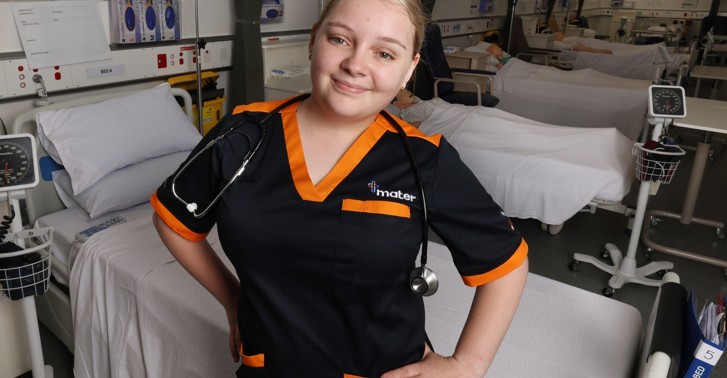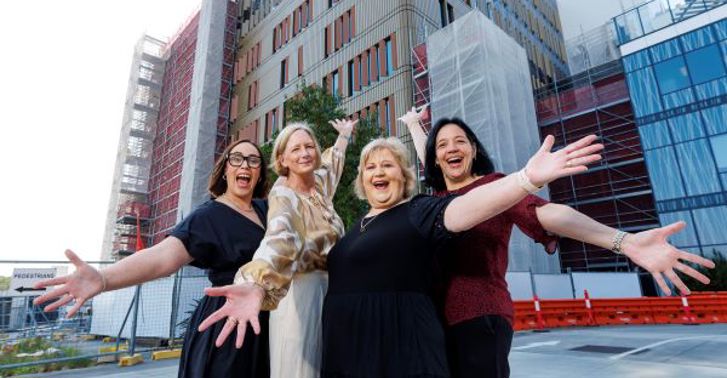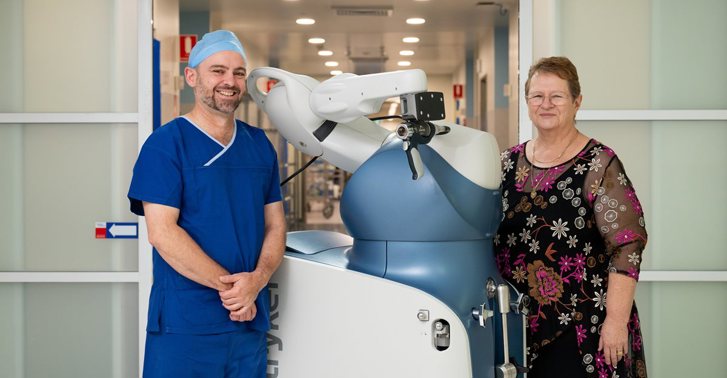
Queensland’s junior sports clubs are prioritising injury prevention after new figures revealed a dramatic surge in serious knee injuries among young athletes.
The number of knee reconstructions for patients aged 18 and under at Queensland’s Mater hospitals has increased by a staggering 171 per cent in the past 10 years – from 68 in 2015 to 184 in the year to June 2025.
The increase aligns with other studies that have shown steady annual rises in anterior cruciate ligament (ACL) injuries across Australia in recent decades.[1]
Dr Mike Reid, an orthopaedic sports specialist at Mater Private Hospital Brisbane and Mater Private Hospital Springfield who is passionate about both the treatment and the prevention of injuries in the sporting community, said the grassroots growth of AFL, soccer and netball was driving the increase – especially among girls.
“There’s been a big increase in junior sport participation – which is excellent for the health of our communities – but we’re also seeing an increase in injuries associated with that.
“We are seeing injuries such as ACL tears in ‘pivoting sports’ which require frequent changes in direction.
“In sports like AFL and soccer we’ve seen a big increase in female participation, and rightly so, but there’s a higher incidence rate of ACL ruptures in girls than boys.
“The reasons for girls being more prone to ligament injuries are complex and multifaceted.
“Anatomical differences play a role and hormonal fluctuations contribute by making ligaments more lax and susceptible to injury.”
ACL injuries frequently require knee reconstructive surgery and up to 12 months of rehabilitation – with uninsured patients facing waits of up to a year before they even undergo surgery.
Dr Reid says it is important for parents and coaches to pay attention to each child’s physical development.
“If a child is going through a period of rapid growth, when they may be eating or sleeping more than normal, it’s important to back off on their training schedule as this is when they may be more susceptible to injury,” he said.
“If a young person is fatigued, be aware that then is when they are most likely to push that little bit further, but not have reaction or strength to support their joints, and then suffer an injury.”
Dr Reid is applauding clubs which have embraced more comprehensive warm-up routines for all players.
“A couple of laps of the track isn’t good enough,” Dr Reid said. “Coaches now have evidence-based routines which engage the muscle groups that are responsible for balance and agility.”
Dr Reid endorses the FIFA 11+ warm-up routine, which has been shown reduce injuries in boys by 30 per cent and 60 per cent in girls.
Soccer player Connor Campbell, aged 19, tore his PCL at a school sports day when he was 17.
Dr Reid safely managed the injury without surgery, working with his team physiotherapist.
Campbell has successfully returned to soccer, captaining Brisbane City FC Under 23s to the season’s Grand Final and winning the Premiership.
His younger sister Hayley, 17, was not as fortunate. Dr Reid recently operated on her after she suffered an ACL rupture during soccer training at the Queensland Academy of Sport in Nathan.
“I was turning to chase a ball, and I felt a pop in my knee and went down,” Hayley said.
“I kind of knew straight away it was my ACL. I’m in good hands, but I will still miss the whole of next season.”
Hayley was assessed promptly, diagnosed, and placed on a structured treatment pathway through Dr Reid’s acute injury clinic. Her treatment involved a coordinated team effort, including her GP, physiotherapist, surgeon, family and club.
“I see my injury as an opportunity to work on myself and to learn from the sidelines – but it is tough to be out of playing soccer for so long,” Hayley said.
“Hayley’s determination has been inspiring,” Dr Reid said.
“She has approached her recovery maturely, with patience, and a positive mindset. I have no doubt she will be back on the field stronger than ever.”



